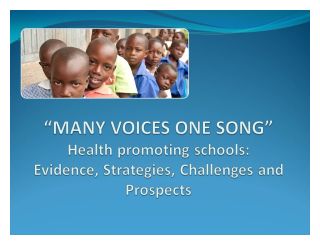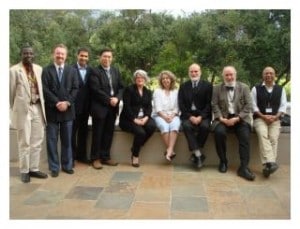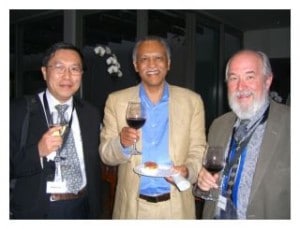
The Peter Wall Institute for Advanced Studies (PWIAS), associated with the University of British Columbia, held its second Peter Wall Colloquium Abroad at STIAS from 9–11 November 2011; the focus was on the concept of Health Promoting Schools.
In his welcoming words the STIAS Director Prof Hendrik Geyer briefly recalled a formulation of the early STIAS vision, that “… unless special efforts are made, the country and continent will not be able to meet the challenges of a rapidly changing world – a world where access to the latest knowledge often means the difference between success and failure. South Africa (and Africa) needs to be part of the global network of scientific endeavour and knowledge production. It also needs a space where existing knowledge can be challenged, where critical enquiry flourishes and where innovative solutions can be found.” He indicated that aspects which distinguish the STIAS programme are that (a) it cuts across all disciplines, from the humanities and social sciences to the natural sciences; (b) it maintains an active focus on the South African and African contexts; (c) it emphasises projects of an interdisciplinary nature which can live up to the STIAS motto of “research of the highest relevance at the highest level”.
He concluded that “this colloquium and its aims fully resonate with these ideals,” expressing an indebtedness to Prof Dianne Newell (PWIAS Director) for her institutional and personal support, and to Prof Andrew Macnab (UBC) and Dr Arabat Kasangaki (Makerere) who had taken up STIAS Fellowships for a second time and coordinated the programme with members of Stellenbosch University’s Faculty of Health Sciences.
The Colloquium was officially opened by the Vice-Chancellor of Stellenbosch University, Prof Russel Botman, who set the context by welcoming the delegates and stating that “the promotion of health in schools should be linked with wellness which includes not only physical aspects, but also social, emotional, intellectual, spiritual and financial wellness”. He added that “health promotion in schools is a way of building hope in situations where despair is threatening to overwhelm people”.
Invited speakers from around the world presented on a range of HPS topics and collaborated with South African faculty and HPS leaders to evaluate the evidence, strategies, challenges and prospects of this health promotion model in small group discussions and a single large group consensus discussion.
The evening public forum on 10 November, attended by approximately 60 people, was opened by the Dean of the Stellenbosch University Faculty of Health Sciences, Professor Jimmy Volmink. The forum provided brief summaries of some of the key presentations. Dr. Keith Cloete, from the Ministry of Health, spoke about the Provincial Government of the Western Cape’s vision for promoting health and wellness, emphasizing the important role of child health and school-based health programmes in this process.
The primary outcomes of the 3-day colloquium were the establishment of a strong international network of investigators and leaders of health promoting schools (Stellenbosch Working Group on Health Promoting Schools, SWGHPS); the generation of a consensus statement on the value and process of HPS (Stellenbosch Statement), acknowledging the important role of institutes of higher learning as HPS themselves, sources of innovation and informed personnel, and clarifying the role of HPS in teaching not only their own students but also medical trainees; the publication of a focus issue of previously unreported HPS case studies with teams of authors, some inexperienced, supported through the process; the development of a virtual wall to enable HPS students, teachers, researchers, and HPS leaders to share their stories; the organization of research teams around specific research questions with commitment to obtain substantial funding for implementing HPS and evaluating their efficacy in changing health-related behaviours in the short term as well as their impact on long term well-being of individuals and communities.
In her closing remarks on the success of this international Peter Wall Institute Colloquium Abroad, the PWIAS Director, Professor Dianne Newell, observed that “place” is critical. She suggested to the meeting that it is a tribute to the strength of the STIAS-PWIAS formal partnership and to the existence of STIAS that this gathering on this topic could take place, and that the conversations had here could never have occurred in Vancouver, Canada.”


